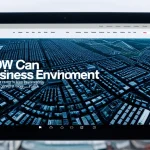Exploring the Latest Trends in Global Politics Today
Understanding current political trends helps you make sense of a rapidly changing world. In 2024, over 68% of adults globally said they follow political developments closely (Pew Research Center). But how do these shifts shape your daily life and future? Let’s explore the forces driving tomorrow’s global landscape together.
Key Developments Shaping Worldwide Political Changes
In today’s interconnected world, political landscapes are shifting rapidly, driven by powerful social movements and evolving digital technologies. From grassroots campaigns amplified by social media to the strategic maneuvers of international organizations, these forces are reshaping how power is exercised and negotiated globally.
Digital platforms have become more than just communication tools—they’re now arenas where political debates unfold and new alliances form. At the same time, social movements advocating for climate action, human rights, and economic justice are influencing national policies and challenging established norms. Meanwhile, cooperation between countries, whether through trade agreements or diplomatic initiatives, continues to recalibrate global power balances. Observing these developments reveals a world where politics is more dynamic, responsive, and interconnected than ever before.
How Political Alliances Are Evolving in 2025
As we navigate 2025, political alliances are far from static; they’re shifting in fascinating and sometimes unexpected ways. Traditional partnerships face challenges as new economic and security concerns arise, pushing countries to rethink their loyalties. For example, long-standing alliances between Western nations are adapting to the rise of regional powers and emerging technologies that redefine global influence.
Meanwhile, new coalitions are forming around shared interests like climate action and digital governance, drawing together unlikely partners. These evolving alliances reflect a world where cooperation is both more necessary and more complex, with implications that ripple through global power dynamics and geopolitical stability. Watching these changes unfold helps us grasp not just the future of diplomacy, but the interconnected nature of today’s challenges.
The Impact of Current Global Political Trends on Everyday Lives
Global political shifts resonate far beyond the corridors of power, shaping the daily experiences of citizens in English-speaking countries. As governments navigate new alliances and regulatory landscapes, social rights face fresh challenges and opportunities. From debates over data privacy to the accelerating digital transformation, these changes influence how people connect, work, and protect their personal information.
Consider, for example, evolving policies on data protection that reflect growing concerns over privacy amid an increasingly digital world. Citizens now find themselves balancing convenience with caution, as political decisions dictate the frameworks that govern online platforms and personal data usage. Meanwhile, social movements advocating for equality and inclusion gain momentum or face setbacks depending on the political climate, directly impacting community life and public discourse.
In this complex web, the integration of technology into everyday routines continues apace, often fueled by international agreements or disputes. Understanding these trends offers valuable insight into the subtle ways politics shapes the fabric of your day-to-day — from the apps on your phone to the rights you exercise in your neighborhood.
Countries Leading the Most Significant Political Shifts
In today’s complex political landscape, a handful of countries are at the forefront of transformative change. China, with its expanding influence in global institutions like the United Nations and the World Trade Organization, is reshaping international norms through its assertive diplomacy and economic initiatives. Its Belt and Road Initiative exemplifies a new approach to geopolitical strategy, connecting Asia, Africa, and Europe in unprecedented ways.
Meanwhile, the United States continues to recalibrate its role on the world stage, balancing alliances within NATO while navigating emerging partnerships in the Indo-Pacific. This dynamic reflects a broader shift toward multipolarity, where power is no longer concentrated but shared among key players.
Closer to home, the European Union grapples with internal cohesion amid external pressures, striving to maintain unity while addressing challenges like migration and security. Countries within Africa, notably Nigeria and South Africa, are gaining prominence by actively participating in regional blocs and international organizations, championing development and peace efforts across the continent.
Together, these nations contribute to a political tapestry that is as interconnected as it is evolving, inviting us all to stay curious about how global governance continues to transform in real time.
Understanding Global Politics: Why It Matters for the Future
Global politics might sound like a distant game played in grand halls, but its impact touches every corner of our lives. From trade deals to social policies, understanding these trends equips you to navigate a rapidly changing world.
Here are some practical ways following global political shifts can prepare you for future challenges and opportunities:
- Anticipate economic changes affecting jobs, markets, and investment climates worldwide.
- Stay informed on social policies that influence local and international communities.
- Recognize shifting alliances to grasp how power balances may reshape security and cooperation.
- Adapt to technological impacts as digital governance and data policies evolve globally.
- Engage meaningfully in civic discussions with a well-rounded perspective on current affairs.
By connecting the dots between countries and policies, you gain a clearer view of the future’s challenges—and chances to make a difference.
“`html
Frequently Asked Questions About Global Political Trends
What are the most significant trends in global politics right now?
Key trends include shifting power blocs, the rise of digital diplomacy, and increasing focus on climate policies. International organisations play a crucial role in managing these transformations.
How are political alliances changing on the world stage?
Alliances are evolving with new partnerships forming around economic and security interests. Traditional alliances, especially in Europe, are adapting to emerging challenges and digital transformation.
What impact do current global political trends have on everyday people?
Political shifts influence job markets, migration, and environmental policies, directly affecting daily life. Staying informed helps individuals anticipate changes and make empowered decisions.
Which countries are leading the major political shifts worldwide?
Countries like China, the United States, and members of the European Union are at the forefront, driving significant political and economic changes that ripple globally.
How can understanding global political trends help us prepare for the future?
Grasping these trends promotes foresight and adaptability, allowing people and organisations to navigate uncertainty and seize emerging opportunities worldwide.
How does our platform help readers stay informed about political trends?
We provide clear, balanced insights with relatable examples. Our friendly tone makes complex issues accessible, encouraging curiosity and critical thinking about global affairs.
“`









